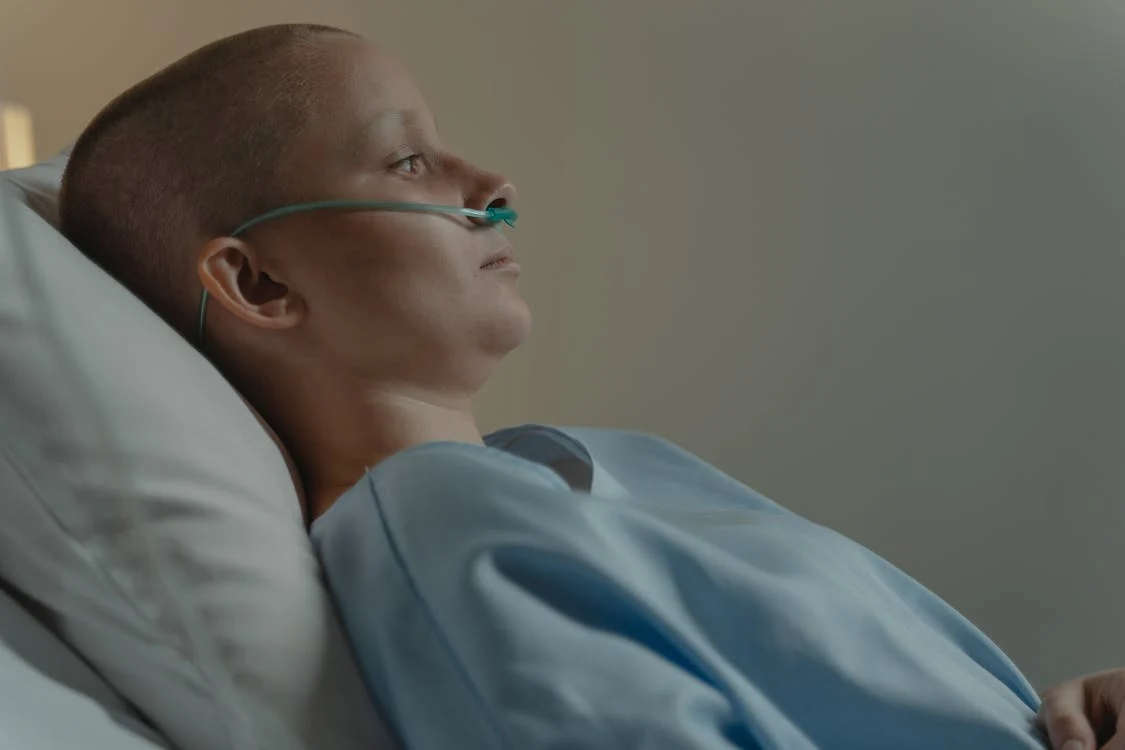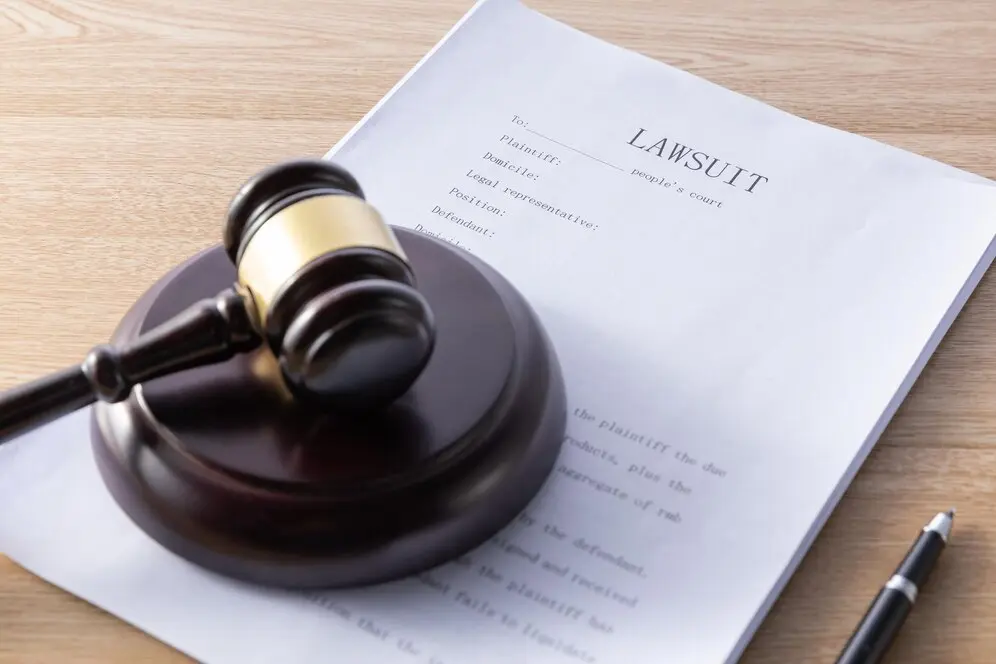Find the Best Zantac Lawyer for Your Case

Zantac, also known by its generic name Ranitidine, is a medication that was widely used to treat and prevent ulcers in the stomach and intestines. It was also used to treat acid reflux, heartburn, and other gastrointestinal diseases
Recent developments following Zantac’s controversial investigation have initiated massive waves of lawsuits following Zantac’s recall in 2020 by the US Food and Drug Administration (FDA). If you plan to file a Zantac lawsuit, you need to find the right lawyer to defend your case.
Why Is Zantac Controversial?
The controversy over Zantac started in 2019 when Valisure, an online pharmacy, found high levels of N-nitrosodimethylamine (NDMA). It’s a substance that could potentially cause cancer, in all samples of ranitidine they tested, regardless of the manufacturer.
The discovery of the drug’s safety has led health authorities worldwide, including the FDA, to impose necessary restrictions. By April 2020, the FDA called for all Zantac and its generic forms to be removed from the market.
If you believe Zantac caused your cancer diagnosis, you are within your legal right to file a lawsuit.
Where Can I Find Zantac Lawyers?
Start with a focused search for lawyers or law firms specializing in pharmaceutical litigation or specifically in Zantac lawsuits. Experience in this niche indicates a deeper understanding of the relevant laws, regulations, and scientific evidence crucial for these cases.
Listed below are some methods that will help you find the right Zantac lawyer for your case
Browse Online Legal Directories
Utilize legal directories such as Martindale-Hubbell, Avvo, and FindLaw. These platforms provide listings of attorneys with detailed profiles, areas of specialization, and client reviews.
Reach Out to Law Firm Websites
Visit law firm websites directly. Many firms publish details of their case history, outcomes of previous settlements or verdicts, and articles or blogs about their involvement in Zantac litigation.
Ask for Referrals
Ask for referrals from friends, family, or professionals. A recommendation from someone who has had a direct positive experience with a lawyer can be invaluable.
Important: Zantac attorneys are more particularly inclined to represent clients who have taken Zantac based on a prescription over those who took generic ranitidine. Keep any prescription records and receipts that can help build your case.
Work With Justice Hero
Our team at Justice Hero can help you locate a Zantac lawyer to assess your claim. Fill out our contact form, and a member of our team will quickly get in touch to connect you with a knowledgeable attorney suited to your case.
How to Choose the Right Zantac Lawsuit Lawyer
Hiring a Zantac lawsuit attorney for your case can provide several advantages, especially since it’s pharmaceutical litigation. When seeking representation for a Zantac lawsuit, here are some key qualities to look for:
Experience with Zantac Lawsuits
A lawyer with experience in Zantac lawsuits will have a deep understanding of the legal and medical complexities involved. They will be familiar with the strategies used by the defense and will know how to counter them effectively.
Track Record of Success
The right Zantac lawsuit attorney should have a proven track record of winning similar cases. This includes Zantac lawsuits and other pharmaceutical and product liability cases. A successful track record indicates that the lawyer can build a strong case and negotiate a fair settlement.
Resources and Network

Zantac lawsuits can be complex and may require the input of medical experts, investigators, and other professionals. A lawyer with a strong network of resources will be able to gather the necessary evidence and expert testimony to strengthen your case.
Communication Skills
The best Zantac attorneys should be able to explain complex legal and medical concepts in accessible terms to a judge or jury. They should also keep you informed about the progress of your case and be responsive to your questions and concerns.
Compassion and Empathy
A good Zantac lawyer understands that you are going through a difficult time and treats you with compassion and empathy. They should be committed to getting you the compensation you deserve and be willing to go the extra mile to achieve this.
Fee Structure
Make sure you understand the lawyer’s fee structure.
Many Zantac lawsuit attorneys work on a contingency basis, which means they only get paid if they win your case. However, there may be other expenses you will need to account for.
Here is a table detailing other potential costs you might incur when filing a Zantac lawsuit:
| Payment Structure | Description | Estimated Price Range |
| Contingency fee | Paid as a percentage of the settlement or judgment (no upfront payment required) | 20% – 40% of the recovery amount |
| Hourly rate | Charges for each hour worked on the case (may require an upfront retainer) | $200 – $500 per hour |
| Flat fee | Set fee for specific legal services, regardless of time spent | $1,000 – $10,000 |
| Retainer fee | Advance payment on the hourly rate (used for the lawyer’s services as needed) | $2,000 – $10,000 (initial deposit) |
| Consultation fee | Fee for the initial meeting to discuss the case (some lawyers may offer this for free) | $0 – $400 per consultation |
Keep in mind that these values are estimates, and the actual rates will depend on your lawyer. Be sure to discuss this upfront to avoid any issues with fees.
What Questions Should I Ask Potential Zantac Lawyers?
Don’t be afraid to ask questions during the consultation process. Doing so will help you understand a potential lawyer’s experience, approach, and how they will manage your case.
Here’s a list of essential questions to consider:
Questions to Gauge Their Experience
- What experience do you have with Zantac lawsuits or similar cases?
- What’s your track record in handling pharmaceutical and product liability cases?
- Can you outline the strengths and weaknesses of my case?
Questions to Manage Your Expectations
- Do I have a case against Zantac manufacturers?
- How long do you expect this case to take?
- What resources does your firm have for handling my case?
Questions to Ask About the Process
- Who will be handling my case directly?
- How do you communicate with clients, and how often?
- What is your approach to settlement negotiations versus going to trial?
What Are the Potential Health Risks Associated with Zantac?

Zantac medication has been linked to several potential health risks, most notably its connection to cancer.
Since the FDA discovered in 2019 that some ranitidine medications contained NDMA, there have been concerns about long-term exposure to NDMA through Zantac contributing to various types of cancers, including bladder, liver, pancreatic, esophageal, pharyngeal, colorectal cancer, and stomach cancer.
Those who took Zantac for acid reflux and other gastrointestinal problems may also experience other side effects.
Some of its minor health complications include:
- Abdominal pain
- Chest pain
- Headaches
- Backaches
- Difficulty breathing
Some of its major health complications include:
- Nausea and vomiting
- Hemorrhaging
- Pneumonia
- Cerebrovascular disease
- Renal problems
Additionally, long-term use of Zantac can lead to vitamin B-12 deficiency, potentially resulting in anemia and neurological issues.
Safety First: Watching your health is critical when filing a lawsuit. Remember to consult your doctor to confirm if you should continue with your Zantac prescription or switch to a different medication.
How to Identify a Valid Zantac Claim
If you or a family member received a cancer diagnosis and suspect taking Zantac long-term as the potential cause, you might have a valid legal case.
To be eligible to file a Zantac lawsuit, an individual needs to meet several specific criteria:
- They must provide proof of Zantac usage for a certain amount of time, which can include pharmacy or prescription records and even over-the-counter receipts.
- The individual must have a cancer diagnosis potentially linked to Zantac, such as bladder, esophageal, or stomach cancer.
- The diagnosis of the health condition should ideally occur within a certain timeframe after taking Zantac, with this timeframe varying depending on the case and jurisdiction.
- The individual should not have significant risk factors for the diagnosed condition other than Zantac usage.
In some cases, family members of individuals who have passed away due to conditions potentially linked to Zantac may also be eligible to file a lawsuit. This is typically referred to as a wrongful death claim.
What Kind of Compensation Can I Expect from a Zantac Lawsuit?
The compensation from Zantac claims can vary greatly depending on the specifics of the case. Several common factors can influence the amount of compensation you may receive.
Severity of Illness or Injury
The more severe your illness or injury—like pancreatic or stomach cancer, for example—the higher the potential compensation. This is because severe conditions often require extensive medical treatment, result in significant income loss, and cause considerable pain and suffering.
Medical Expenses
Compensation often includes reimbursement for past, current, and future medical expenses related to the health complications caused by Zantac. This can include hospital stays, surgeries, medications, physical therapy, and any necessary medical equipment.
Lost Wages and Loss of Earning Capacity
If your illness or injury has caused you to miss work or has reduced your ability to earn income in the future, you may be compensated for these losses.
Pain and Suffering

This is a non-economic damage that refers to the physical pain and emotional distress caused by your diagnosis. The amount awarded for pain and suffering can vary greatly depending on the specifics of your Zantac lawsuit.
Punitive Damages
If the court finds the defendant’s actions extremely harmful or careless, it may issue punitive damages. This kind of penalty is meant to punish the defendant and prevent such conduct from happening again.
Remember: It’s important to note that each Zantac cancer lawsuit is unique, and the amount of compensation will be determined on a case-by-case basis.
The Process of Filing a Zantac Lawsuit
Filing a Zantac lawsuit involves several steps, each crucial to the case’s success. Here is a general overview of the process:
Consultation With a Zantac Lawyer
The first step in filing a Zantac case is to consult a lawyer specializing in Zantac cases. During this consultation, the lawyer will evaluate the merits of the case, discuss potential compensation, and explain the legal process in detail.
Collection of Evidence
If the lawyer determines a valid case, the next step is to gather evidence. This may include medical records, pharmacy records, and any other documentation proving the use of Zantac and the resulting health issues.
Filing of the Lawsuit
Once all the necessary evidence has been collected, the lawyer will file the lawsuit on behalf of the client. This involves drafting a complaint that outlines the allegations against the manufacturers of Zantac, the harm caused to the client, and the compensation sought.
Discovery Phase
After the lawsuit has been filed, both sides will enter the discovery phase. During this time, each party can request documents and information from the other side, conduct depositions, and gather additional evidence for their case.
Negotiations and Settlement
In many cases, the defendant may offer a settlement to avoid going to trial. The lawyer will negotiate on behalf of the client to ensure the best possible outcome. The case will proceed to trial if a settlement cannot be reached.
Trial
During the trial, both sides will present their case to a judge or jury. The plaintiff’s lawyer will present evidence to prove that Zantac caused harm to the client and that the manufacturers should be held liable.
Verdict and Compensation
If the verdict is in favor of the plaintiff, the court will determine the amount of compensation. This could include medical expenses, lost wages, pain and suffering, and punitive damages.
How Long Does a Zantac Lawsuit Take?

While it’s difficult to predict exactly how long a Zantac lawsuit will take, it’s not uncommon for these cases to last several years. The duration of a Zantac lawsuit can also vary greatly depending on a number of factors:
Complexity of the Case
Lawsuits involving pharmaceuticals like Zantac can be quite complex.
They often involve intricate medical and scientific evidence, which can take time to gather and present. Legal arguments in these cases can be complicated, requiring extensive research and preparation.
Number of Plaintiffs
Zantac lawsuits are often filed as class actions or consolidated in MDLs.
In these cases, there are many plaintiffs which can prolong the process. Each plaintiff may have different health issues and different levels of exposure to Zantac, which need to be individually assessed.
Court’s Schedule
The court’s schedule can also impact the duration of a Zantac lawsuit.
Courts often have heavy caseloads, and it can take time to schedule hearings and trials. Additionally, delays can occur if the court needs to resolve preliminary issues before the case can proceed.
Willingness to Settle
Many lawsuits are resolved through settlement rather than going to trial.
The willingness of the parties to negotiate and reach a settlement can significantly impact the length of the lawsuit. If the parties are open to settlement and able to agree on terms quickly, the lawsuit can be resolved in a shorter timeframe.
The Current Status of Zantac Cancer Lawsuits
Thousands of lawsuits have been filed against Zantac manufacturers, primarily Sanofi and Boehringer Ingelheim. These Zantac claims allege that the drug contains NDMA and that the manufacturers failed to warn consumers about this potential risk.
As of this writing, the direction of the Zantac lawsuit largely depends on the result of a key hearing, known as the Daubert hearing, taking place in Delaware under Judge Vivian L. Medinilla. Her decision will be vital in deciding if the lawsuit will continue in Delaware.
Additionally, an appeal in the Zantac multidistrict litigation (MDL) will affect the thousands of plaintiffs involved in the MDL. Those not part of the MDL may consider pursuing their cases in state courts.
Get the Justice You Deserve
Our sympathies extend to those confronting significant difficulties due to cancer and other health complications. If you believe the drug has caused your cancer, Justice Hero is committed to providing support and guidance.
Reach out to us today to begin your case toward seeking justice.
DISCLAIMER: This article does not provide legal advice and is intended for informational purposes only. Always consult with a professional for recommendations related to your specific situation.
On This Page
Where Can I Find Zantac Lawyers
How to Choose the Right Zantac Lawsuit Lawyer
What Questions Should I Ask Potential Zantac Lawyers
What Are the Potential Health Risks Associated with Zantac
How to Identify a Valid Zantac Claim
What Kind of Compensation Can I Expect from a Zantac Lawsuit
The Process of Filing a Zantac Lawsuit
How Long Does a Zantac Lawsuit Take
Case Status:
Ongoing (some cases settled)
Defendants:
Zantac manufacturers, including GlaxoSmithKline
Injuries:
Cancer development
